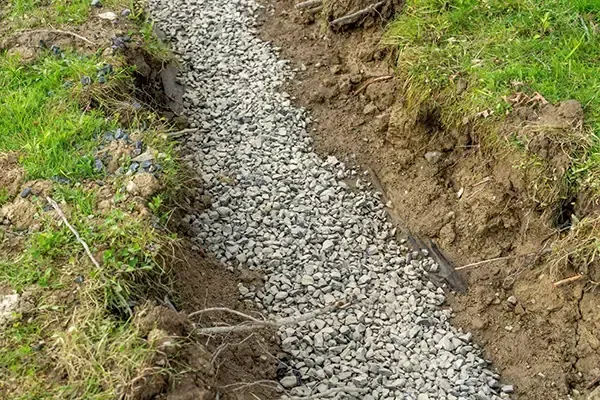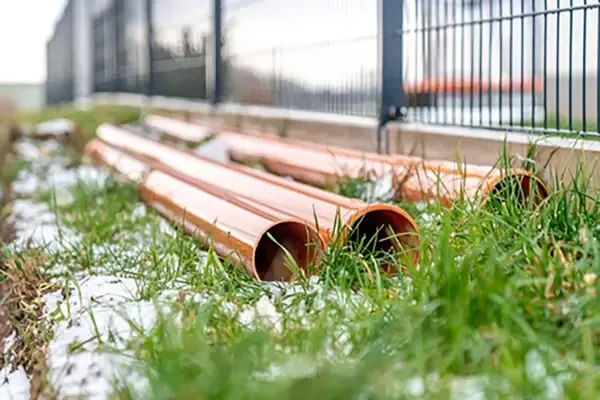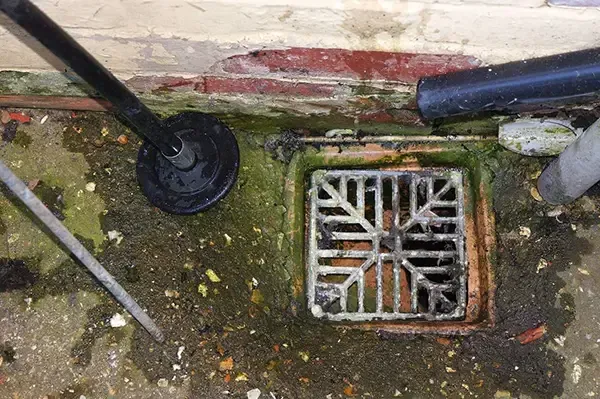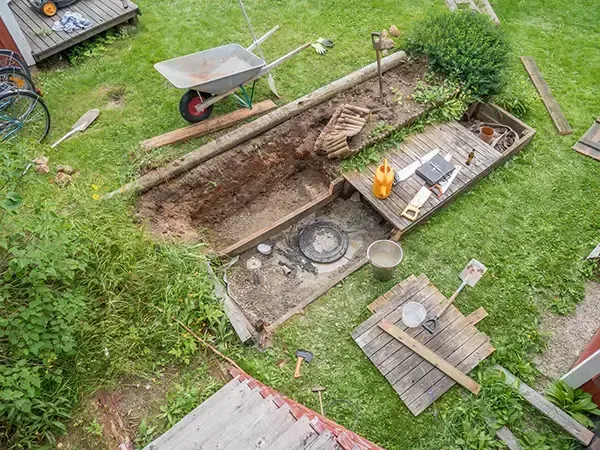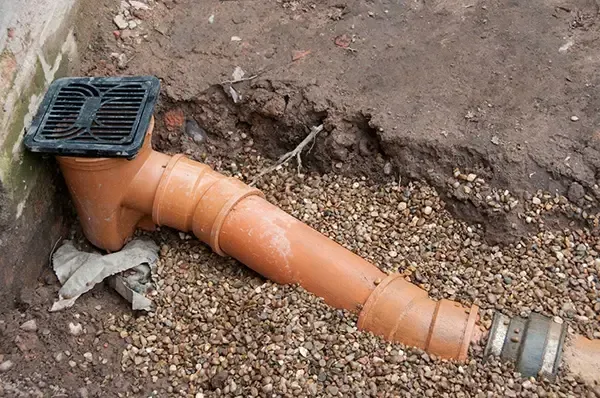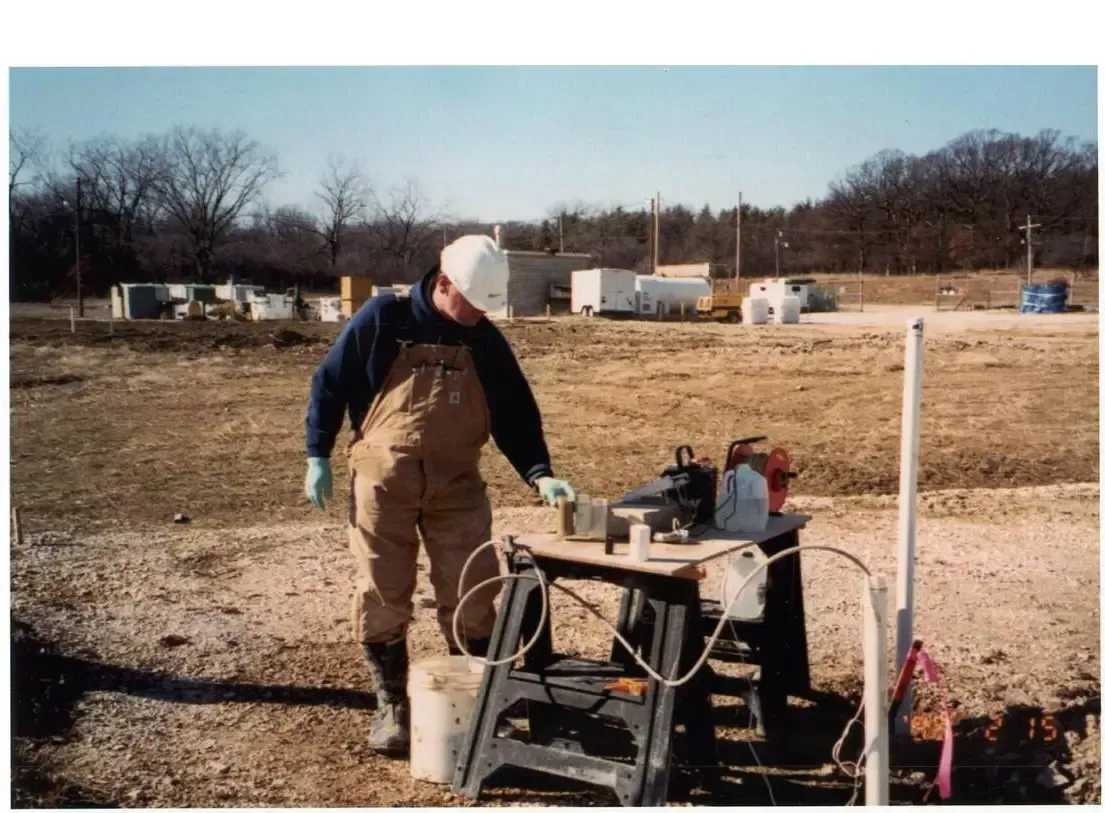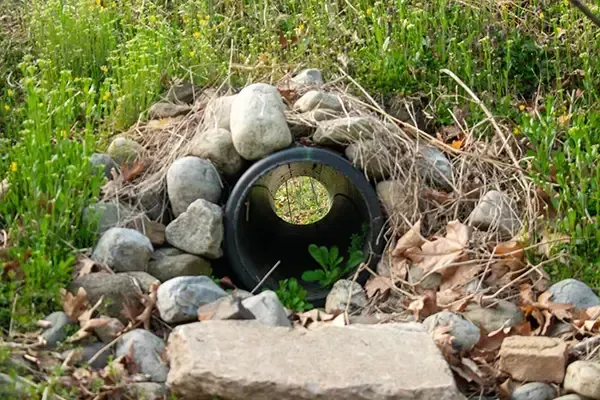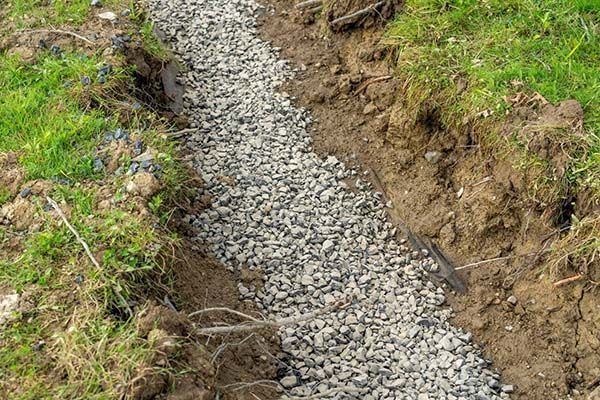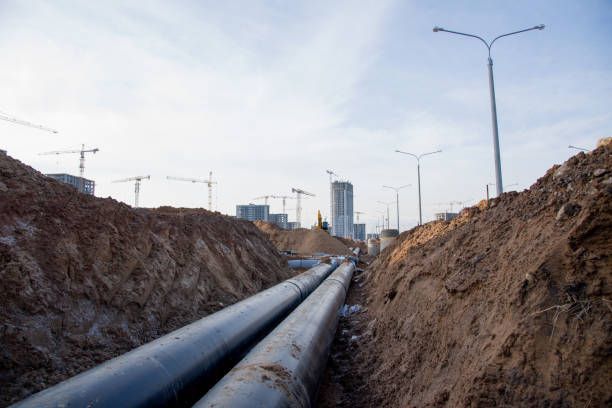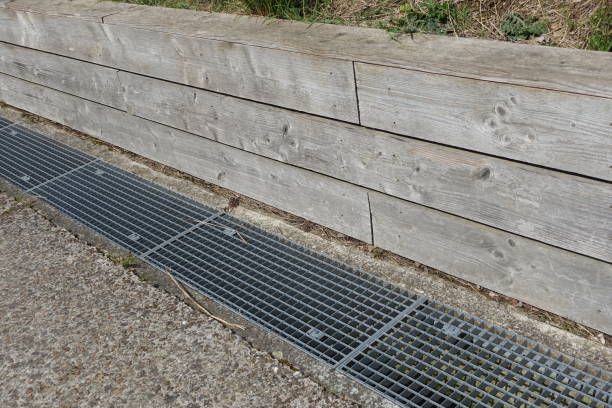How Can You Tell If Your French Drain Needs Repair?
If you've noticed water pooling in your yard or around your foundation, it might be time to assess the condition of your French drain.
Signs like soggy soil, lush grass patches, or strange gurgling noises can indicate that something's not quite right.
Additionally, if there's debris at the outlet, it could be restricting water flow.
Understanding these potential issues is crucial, but knowing how to effectively address them can make all the difference in protecting your property.
What steps should you take next?
Common Signs of Damage in French Drains
Identifying common signs of damage in your French drain is crucial for ensuring its continued effectiveness and protecting your property from water damage.
Key Signs of Potential Damage:
- Water Pooling:
- Observe your yard for areas of persistent water pooling, especially after heavy rainfall or snowmelt.
- Water pooling around the foundation or in low-lying areas can indicate a drainage issue.
- Soggy Soil:
- Pay attention to areas of consistently soggy soil around the drain.
- This can indicate that water is not draining properly and may be accumulating in the soil.
- Unusual Plant Growth:
- Observe any unusually lush or vibrant plant growth around the drain.
- While healthy plant growth is generally desirable, unusually lush growth in specific areas may indicate that water is accumulating in those spots.
- Gurgling Sounds:
- Listen for gurgling sounds emanating from your drainpipes.
- These sounds may indicate a blockage or air trapped within the system.
- Debris Buildup at the Outlet:
- Regularly inspect the drain outlet for any accumulation of debris, such as leaves, twigs, or soil.
- Debris buildup can obstruct water flow and reduce the effectiveness of the drainage system.
By regularly monitoring for these signs of damage, you can address any issues promptly and ensure your French drain continues to function effectively, protecting your property from the detrimental effects of excess moisture.
Causes of French Drain Failure
Several factors can contribute to the failure of a French drain system:
Clogging:
- Debris accumulation: Leaves, twigs, soil, and other debris can clog the perforated pipe and gravel bed, hindering water flow.
- Sediment buildup: Over time, sediment can accumulate in the trench, reducing the drainage capacity.
Improper Installation:
- Incorrect slope: If the trench is not sloped correctly, water may not flow effectively, leading to pooling and potential backups.
- Use of unsuitable materials: Using the wrong type or size of gravel or pipe can compromise the system's effectiveness.
Root Intrusion: Tree roots can grow into the trench, obstructing the pipe and disrupting water flow.
Soil Erosion: Soil erosion can shift the position of the drain pipe, affecting its functionality.
Extreme Weather Conditions: Heavy rainfall can overwhelm the system, while prolonged drought can lead to soil shrinkage and potential gaps in the drainage system.
By understanding these potential causes of failure, you can take proactive steps to maintain your French drain and ensure its long-term effectiveness.
Regular inspection and maintenance are crucial to prevent these issues and protect your property from water damage.
Maintenance Tips for Longevity
Regular maintenance is crucial to ensure your French drain continues to function effectively and provide long-term protection for your property.
Regular Inspections:
- Conduct regular inspections of the drain area, at least twice a year.
- Look for signs of water pooling, soil erosion, or debris accumulation.
Keep the Drain Outlet Clear:
- Regularly clean the drain outlet to remove leaves, twigs, and other debris.
- Consider installing a mesh cover to prevent debris from entering the drain.
Inspect Downspouts:
- Ensure downspouts are directing water away from the drain and into a suitable drainage area.
Check for Signs of Damage:
- Inspect the drain for any signs of damage, such as cracks in the pipe or erosion around the trench.
Professional Inspections:
- Schedule professional inspections every few years to identify and address potential issues early on.
By implementing these maintenance tips, you can ensure your French drain continues to function effectively, protecting your property from water damage and providing long-term peace of mind.
Maintaining your French drain is essential for safeguarding your property from water damage and ensuring its long-term functionality.
By regularly inspecting for signs of damage, addressing potential causes of failure, and following proper maintenance practices, you can keep your drainage system in top condition.
Whether it's clearing debris, checking for clogs, or scheduling professional inspections, these proactive measures will protect your home, enhance its value, and give you peace of mind knowing your property is well-protected from excess moisture.
